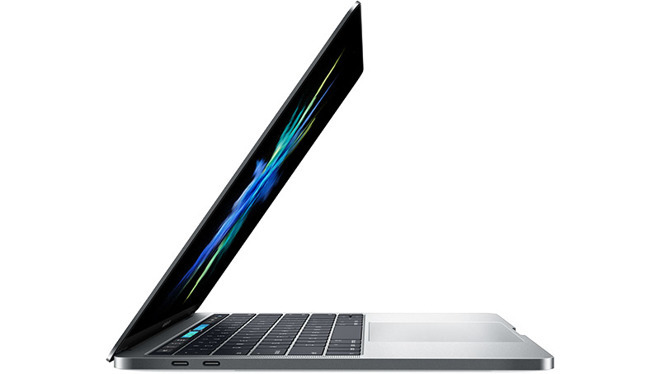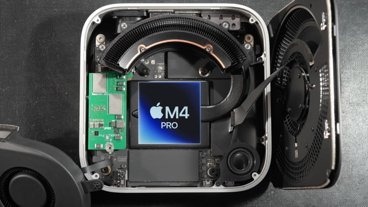Apple SVP of Worldwide Marketing Phil Schiller is on a personal quest to stop the spread of misinformation about the company's new MacBook Pro flagship, as the executive penned another email outlining the why and how of Apple's decision to limit RAM allotments to 16GB.
Schiller in a brief response to an article published by developer Ben Slaney explained Apple's decision to use speedy and efficient LPDDR3 memory, of which Intel's latest processors can handle up to 16GB, was in large part due to battery life concerns.
"The MacBook Pro uses 16GB of very fast LPDDR memory, up to 2133MHz," Schiller said. "To support 32GB of memory would require using DDR memory that is not low power and also require a different design of the logic board which might reduce space for batteries. Both factors would reduce battery life."
The response clarified an error in Slaney's attempt to explain why MacBook Pro with Touch Bar models maxed out at 16GB of RAM, which claimed the LPDDR3E specification tops out at 1866MHz.
As noted by AppleInsider in October, the Intel Skylake CPUs deployed in Apple's new MacBook Pro units only support up to 16GB of LPDDR3 RAM at 2133MHz. Intel does market products capable of addressing more than 16GB of memory, but those chipsets rely on less efficient DDR4 RAM.
Ultimately, MacBook Pro will need an emerging memory technology like LPDDR4 or DDR4L to achieve higher allotments with similar or better battery life performance. Apple will likely implement fast and efficient LPDDR4 memory in a future MacBook Pro with Intel's Kaby Lake processors, though silicon supporting the RAM standard is not due for release until the end of 2017.
Apple has seen an unusual amount of criticism with the launch of this year's MacBook Pro with Touch Bar. From a lack of external ports to mediocre RAM allotments, critics say MacBook Pro fails to meet the needs of the professional demographic it targets.
For its part, Apple asserts its top-of-the-line laptop is an exercise in balancing performance with energy efficiency. In the case of system memory, underlying technology enabling high-capacity, high-efficiency RAM is simply unavailable at this time.
Schiller previously addressed the 16GB memory restriction in an email to a concerned customer last month.
 Mikey Campbell
Mikey Campbell







-m.jpg)






 Brian Patterson
Brian Patterson
 Charles Martin
Charles Martin


 Malcolm Owen
Malcolm Owen
 William Gallagher
William Gallagher
 Christine McKee
Christine McKee
 Marko Zivkovic
Marko Zivkovic








119 Comments
I saw it, I tried it, and now I'm buying it.
The bad press stems mostly from lazy journalism, bad apple news is an easy click bait, second to this they go to reddit to get a public opinion rather than the people who actually buy apple devices. Reddit stopped being a source of general opinion long ago. It mostly started during the smartphone wars, but has been heavily astroturfed by Samsung and Google. Apple could give their hardware away for $1 and reddit would still deride it.
Of special intrigue is that all of the negative reviews were not from actual device usage or from pro end users, nearly all negative reviews weren't based on using the device but rather a perception/rejection of USB-C and only the numeric specifications that suited their pre-written narrative. (E.g. Pretty much all ignored the SSD speed, but focused a lot of time on the 16gb ram limit - when obviously one plays into the other.)
Now that the device is in the hands of users, we're seeing bona fide reviews come through - and unsurprisingly the people who aren't being paid to talk about the device love it.
Yeah because there's no way you could make the device thicker and give it a bigger battery.
Here we go again....needless 32GB debate Round 2!!!!